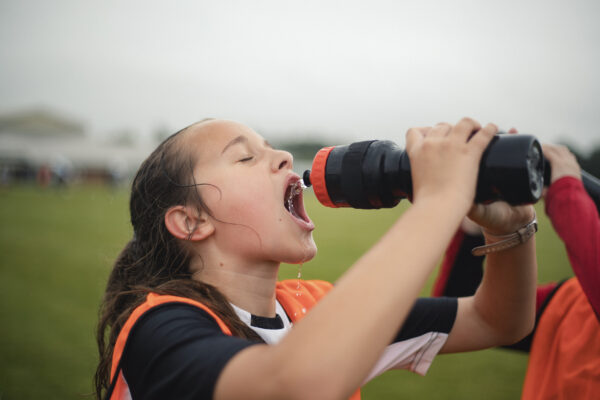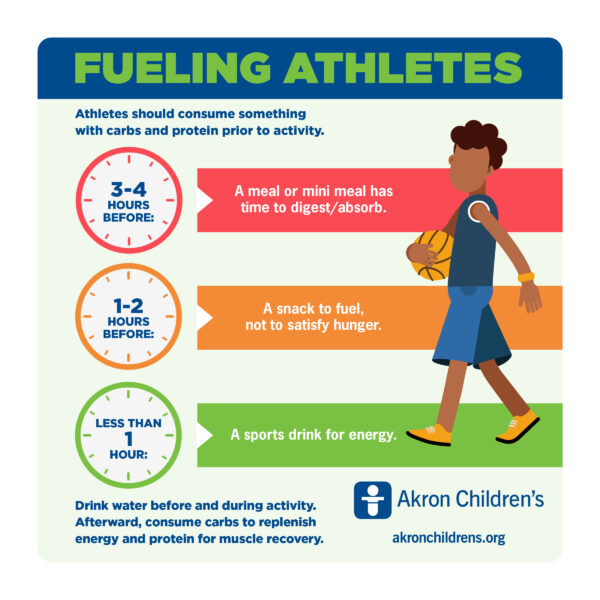 Today’s youth sports culture places a high emphasis on getting better, faster and stronger, all while playing and training for some sports year-round. To keep up, many young athletes turn to supplements promising greater performance and improved hydration to excel in their sport.
Today’s youth sports culture places a high emphasis on getting better, faster and stronger, all while playing and training for some sports year-round. To keep up, many young athletes turn to supplements promising greater performance and improved hydration to excel in their sport.
Teens are taking Liquid I.V.® for mega hydration in hopes of increasing energy and avoiding muscle cramping. They also are turning to supplements, like protein powders and creatine, to help build muscle, grow leaner and improve recovery times.
The question many parents are wondering: Are these sports supplements safe for young athletes?
“Electrolyte drinks in general are safe for young athletes when consumed in moderation,” said Priscilla (Ali) Kalbfell, an athletic trainer at Akron Children’s Mahoning Valley and Liberty High School. “But, parents need to read nutrition labels because many of these supplements, especially creatine, advertised to young athletes can contain harmful ingredients to growing kids.”
What’s more, she warned, these supplements are not approved by the U.S. Food and Drug Administration for safety and effectiveness and there isn’t enough published research to know if they cause any long-term effects. That’s why it’s important to talk to your child’s pediatrician first before taking any sports supplement.
Hydration supplements
Many hydration supplements claim to hydrate faster than water with 3 times more electrolytes than regular sports drinks, and they can be a great source for sodium, potassium and glucose replacement for those young athletes training hard and sweating profusely for greater than one hour.
But, Ali warned they can contain harmful ingredients, such as caffeine and dextrose, which can be an issue for kids with diabetes or a heart condition.

In general, electrolyte drinks are safe for young athletes when consumed in moderation, but parents should read nutrition labels because some can contain harmful ingredients.
She recommends Liquid I.V.® Hydration Multiplier and DripDrop® because they don’t contain caffeine and are lower in sugar. In comparison, Gatorade has 23 grams of sugar, whereas Liquid I.V.® has 11 grams.
“Too much caffeine can cause nervousness, problems with concentration, sleep disturbances, faster heart rates and higher blood pressure,” said Ali. “Teens are already getting too much caffeine from coffee and energy drinks, so adding more caffeine from their hydration methods could be dangerous.”
Protein powder and creatine
Some young athletes use protein powders to build muscle and creatine, a naturally occurring amino acid made in the body and found in red meat and fish, for energy and improved performance. Protein supplements can be helpful to kids that are vegan or who don’t eat meat.
However, there are some risks with these powders because they can also contain harmful additives, such as stimulants (i.e., caffeine), steroids or heavy metals. In addition, creatine can cause side effects, such as muscle cramps, joint stiffness, dehydration, diarrhea and seizures. For these reasons, the American Academy of Pediatrics does not recommend creatine use under age 18.
“Studies have not shown that these supplements are effective in improving sports performance in younger athletes,” said Ali. “Plus, they can contain high caffeine and anabolic steroids, which can stunt growth in kids and cause long-term health issues.”
Is diet alone enough to enhance performance?
If kids are eating a well-balanced diet, supplementing probably won’t offer any additional benefits, Ali said. Instead, she recommends young athletes prepare properly with the right nutrition, appropriate training, and rest and recovery.
For example, kids can eat more carbohydrates, especially on game days, to boost energy for improved performance. In addition, kids can increase protein by 1 gram each day for a safer, more effective way to build muscle and recover after a hard workout than supplementing. For intense workout days or 2-a-day practices, athletes can supplement water intake with food that contains electrolytes and glucose for improved hydration.
“It’s always more health beneficial to eat your nutrients rather than get them from supplements,” said Ali. “Plus, now is the time to teach your kids to fuel their bodies with a healthy, well-balanced diet, so they can take these skills with them into adulthood.”
It’s important to first talk to your child’s pediatrician before starting any supplements. Get to know our pediatricians and schedule an appointment. Virtual Visits are available.











